
Find Help
More Items From Ergsy search
-
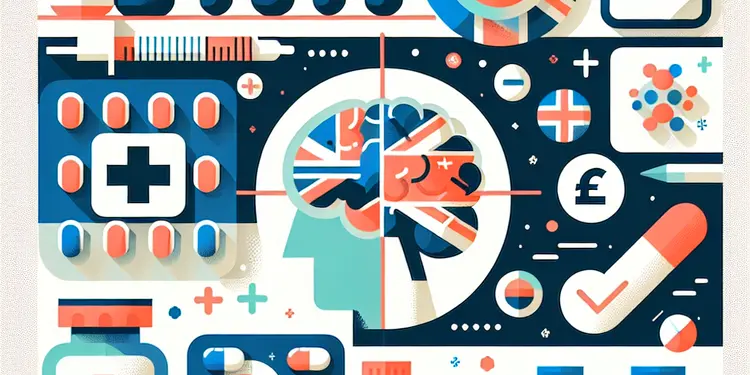
What is the treatment for bacterial meningitis?
Relevance: 100%
-

How serious is bacterial meningitis?
Relevance: 100%
-
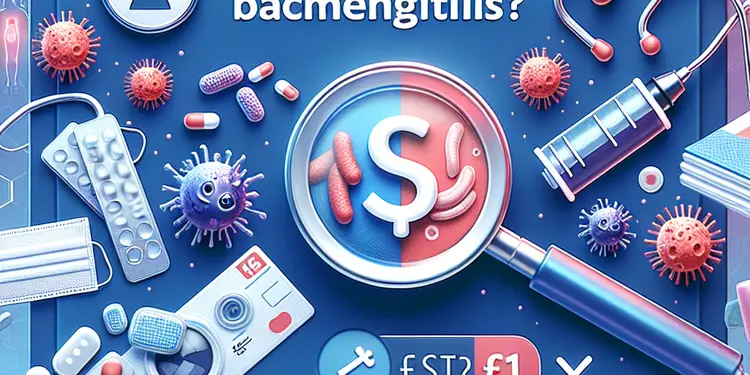
What causes bacterial meningitis?
Relevance: 99%
-

What is meningitis?
Relevance: 75%
-

Is meningitis contagious?
Relevance: 74%
-

What are the main types of meningitis?
Relevance: 69%
-
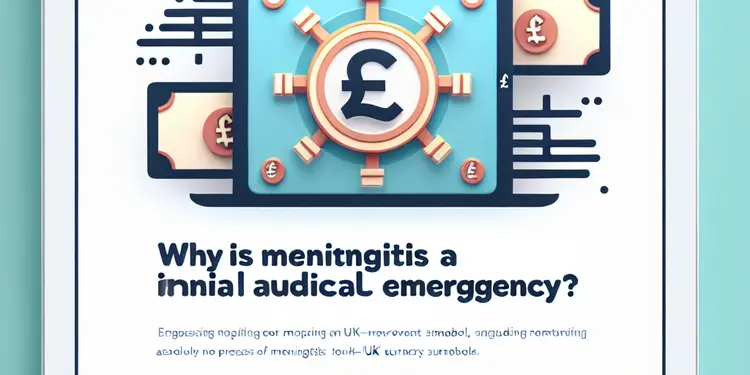
Why is meningitis a medical emergency?
Relevance: 68%
-

Are there vaccines for meningitis?
Relevance: 67%
-

What is the prognosis for viral meningitis?
Relevance: 66%
-
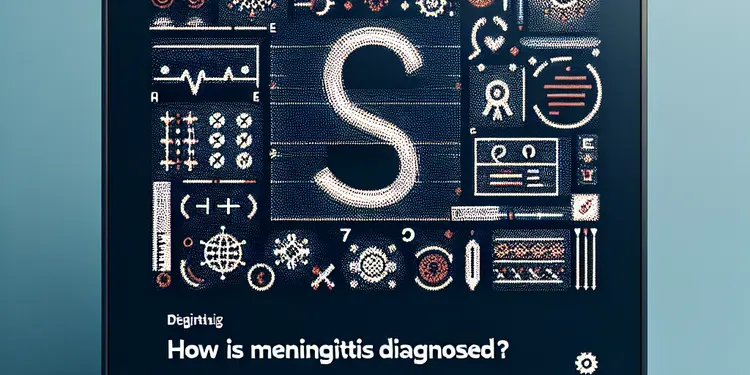
How is meningitis diagnosed?
Relevance: 66%
-

What are common symptoms of meningitis?
Relevance: 65%
-

Can meningitis cause long-term complications?
Relevance: 64%
-

Who is at higher risk of contracting meningitis?
Relevance: 64%
-

Is vaccination recommended for seniors against meningitis?
Relevance: 64%
-

Can meningitis be prevented?
Relevance: 63%
-

What causes viral meningitis?
Relevance: 62%
-

What is non-infectious meningitis?
Relevance: 61%
-
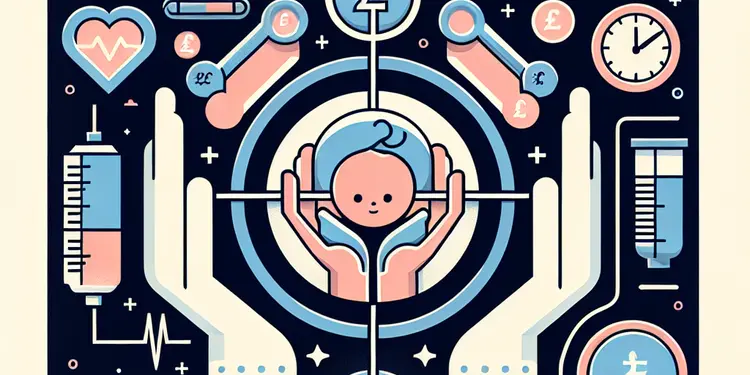
What are the signs of meningitis in infants?
Relevance: 61%
-
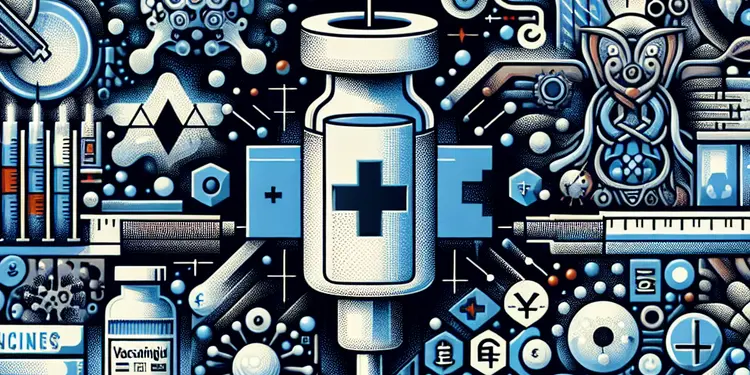
Do people who have had meningitis in the past need to be vaccinated?
Relevance: 60%
-
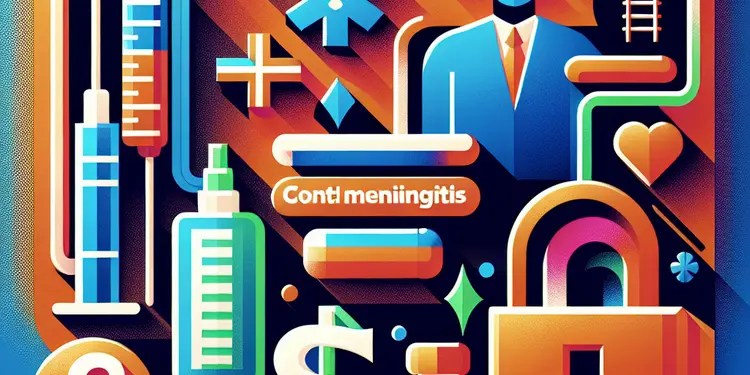
Are adults over 25 recommended for meningitis vaccination?
Relevance: 58%
-

Should health care workers get the meningitis vaccine?
Relevance: 57%
-

Does the CDC recommend meningitis vaccines for adolescents?
Relevance: 56%
-

Should college students get the meningitis vaccine?
Relevance: 56%
-
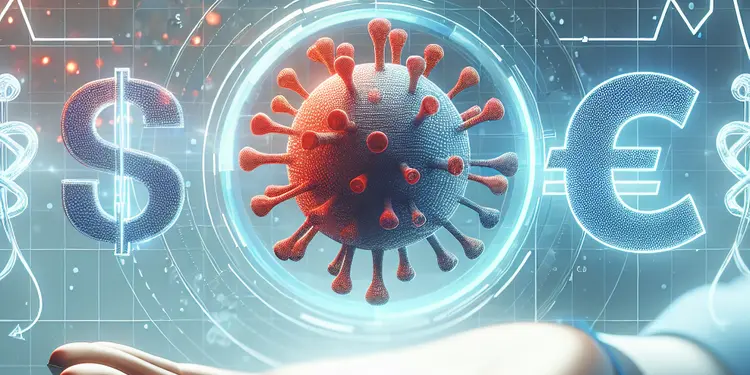
How is viral meningitis spread?
Relevance: 55%
-
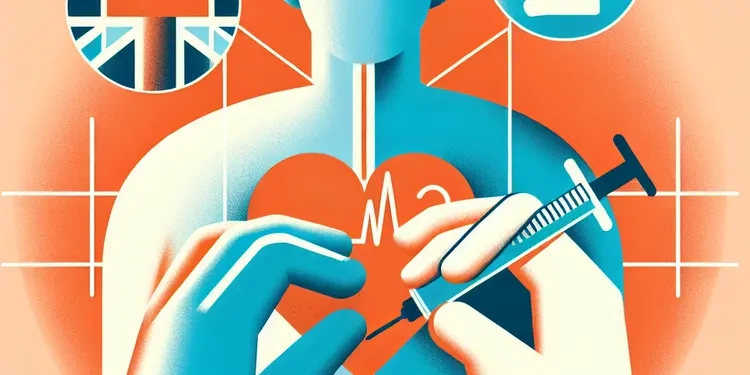
Who should get a meningitis vaccination?
Relevance: 55%
-

Is meningitis vaccination required for military recruits?
Relevance: 54%
-

Are there any specific groups that should prioritize meningitis vaccination?
Relevance: 53%
-
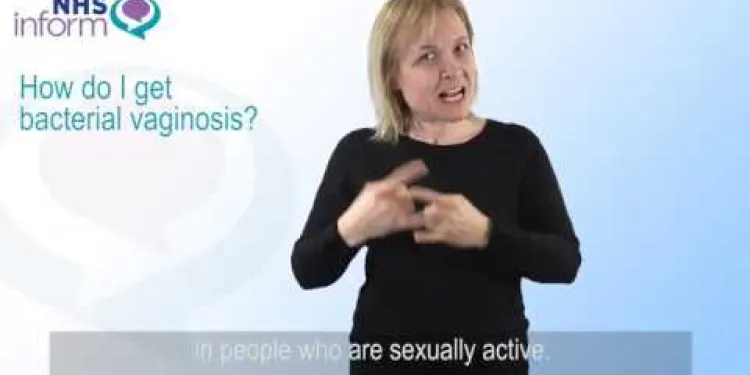
Bacterial vaginosis
Relevance: 52%
-

Do international students need the meningitis vaccine?
Relevance: 50%
-

How is fungal meningitis treated?
Relevance: 48%
-
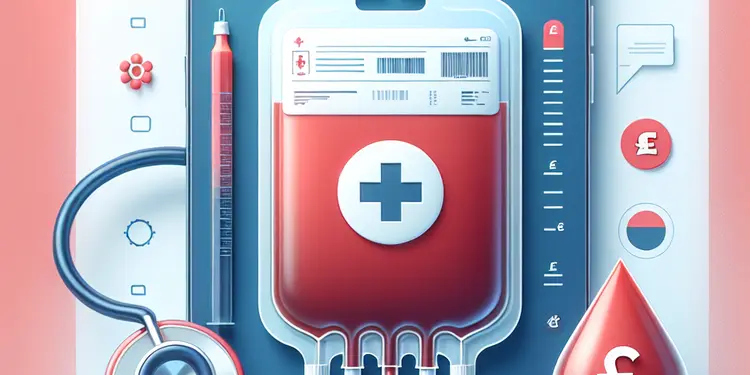
Can bacterial infections be transmitted through blood transfusion?
Relevance: 45%
-

Does refrigeration stop bacterial growth completely?
Relevance: 44%
-

What are the guidelines for meningitis vaccination for HIV-infected individuals?
Relevance: 44%
-

What are the meningitis vaccination recommendations for travelers to Hajj or Umrah?
Relevance: 44%
-

Can mosquitoes transmit any bacterial diseases in the UK?
Relevance: 43%
-
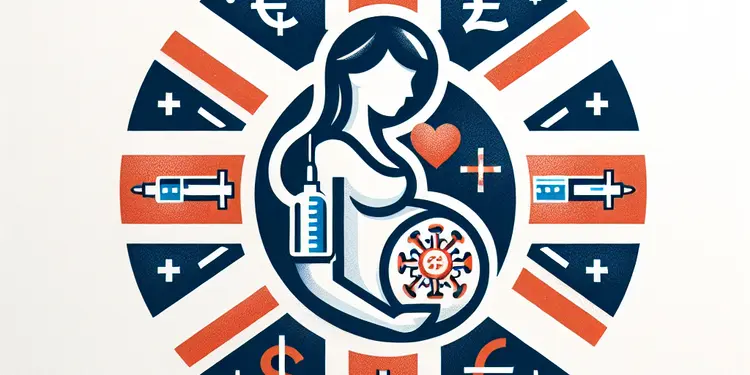
Can pregnant individuals receive the meningococcal vaccine?
Relevance: 22%
-

Are infants recommended to receive the meningococcal vaccine?
Relevance: 21%
-

How long does it take for symptoms to appear?
Relevance: 21%
-

Who is recommended to receive the meningitis vaccination?
Relevance: 21%
-

Should travelers consider getting a meningitis vaccine?
Relevance: 19%
Understanding Bacterial Meningitis
Bacterial meningitis is a severe and potentially life-threatening infection that affects the protective membranes covering the brain and spinal cord, known as the meninges. This condition can be caused by several types of bacteria, with Neisseria meningitidis and Streptococcus pneumoniae being the most common in the UK. Understanding the seriousness of bacterial meningitis is crucial for prompt recognition and treatment.
Risks and Transmission
The seriousness of bacterial meningitis lies in its rapid onset and potential for severe complications. The bacteria responsible for this infection can spread through respiratory droplets, making close contact transmission common, especially in crowded environments such as schools, dormitories, and military barracks. Infants, young children, and those with compromised immune systems are particularly at risk. Additionally, certain genetic factors and other health conditions can increase susceptibility to this condition.
Symptoms and Diagnosis
The symptoms of bacterial meningitis can emerge suddenly and are often similar to those of less severe illnesses, making early detection challenging. Key symptoms include a high fever, severe headache, stiff neck, confusion, vomiting, and sensitivity to light. In young children, symptoms might also include irritability, lethargy, poor feeding, and bulging fontanelle in infants. Diagnosis typically involves a lumbar puncture to obtain cerebrospinal fluid, which is then analyzed to identify the specific bacteria causing the infection.
Complications and Treatment
If not treated swiftly, bacterial meningitis can lead to serious complications, including brain damage, hearing loss, seizures, and even death. In the UK, prompt medical intervention is critical, and treatment usually involves antibiotics administered intravenously to combat the infection directly. Supportive care in a hospital setting is also essential, and in some cases, corticosteroids are used to reduce inflammation.
Prevention Strategies
Prevention of bacterial meningitis has improved significantly with the introduction of vaccines. The UK vaccination schedule includes the MenB vaccine, the MenACWY vaccine, and the pneumococcal vaccine, all of which protect against common causes of meningitis. Vaccination is particularly important for high-risk groups and young children. Maintaining good hygiene and avoiding close contact with infected individuals also help reduce the risk of transmission.
The Importance of Awareness and Education
Bacterial meningitis remains a serious public health concern due to its rapid progression and potential for severe outcomes. Public awareness and education about the symptoms, the importance of vaccination, and early medical intervention are vital in reducing the incidence of this disease. Healthcare providers, parents, and educators should stay informed about the latest recommendations and practices to protect against bacterial meningitis.
What is Bacterial Meningitis?
Bacterial meningitis is a serious illness. It affects the protective membranes around the brain and spinal cord, called the meninges. It can be very dangerous and even life-threatening. This illness is caused by bacteria. In the UK, the most common ones are Neisseria meningitidis and Streptococcus pneumoniae. It is important to know about bacterial meningitis so we can spot and treat it quickly.
How You Can Get It
Bacterial meningitis is very serious because it happens fast and can cause bad health problems. The bacteria can spread when someone coughs or sneezes. This means you can catch it if you are close to someone with the infection, especially in crowded places like schools or dormitories. Babies, small children, and people with weak immune systems can get sick more easily. Some people also have genes or health problems that make them more likely to get it.
Signs and Finding Out
The signs of bacterial meningitis can happen suddenly. They might seem like other sicknesses, so it can be hard to know what it is at first. Some signs are a high fever, really bad headache, stiff neck, being confused, throwing up, and not liking bright lights. In small children, look for crankiness, being sleepy, not eating well, and a bulging soft spot on the head. Doctors use a test called a lumbar puncture to check the fluid around the brain and spine to find the bacteria.
What Can Happen and How It’s Treated
If bacterial meningitis is not treated soon, it can cause serious problems like brain damage, losing hearing, seizures, and even dying. In the UK, it is important to get medical help quickly. Doctors usually give antibiotics through a drip to fight the infection. Being in the hospital is important for care, and sometimes medicine is used to help with swelling.
How to Stay Safe
We can prevent bacterial meningitis better now because of vaccines. In the UK, there are vaccines like MenB, MenACWY, and pneumococcal vaccines that protect us from this illness. These vaccines are very important for young children and people at high risk. It’s also important to keep good hygiene and stay away from sick people to lower the chance of getting it.
Knowing Why It’s Important
Bacterial meningitis is still a big health problem because it can get very bad quickly. Knowing the signs, getting vaccinated, and getting medical help fast are very important to stop this disease. It’s important for doctors, parents, and teachers to know the best ways to keep people safe from bacterial meningitis.
If reading is hard, try using tools like audiobooks or speech-to-text software to help you understand better.
Frequently Asked Questions
What is bacterial meningitis?
Bacterial meningitis is a serious infection of the protective membranes covering the brain and spinal cord, known as the meninges, caused by bacteria.
How serious is bacterial meningitis?
Bacterial meningitis is very serious; it can lead to death or permanent disability if not treated promptly.
What are the symptoms of bacterial meningitis?
Symptoms can include fever, headache, stiff neck, nausea, vomiting, increased sensitivity to light, and altered mental status.
How is bacterial meningitis diagnosed?
Diagnosis is typically made through a lumbar puncture to analyze cerebrospinal fluid, along with blood tests.
What bacteria most commonly cause meningitis?
Common bacterial causes include Streptococcus pneumoniae, Neisseria meningitidis, and Haemophilus influenzae.
How is bacterial meningitis treated?
It requires prompt treatment with intravenous antibiotics and sometimes corticosteroids to reduce inflammation.
Can bacterial meningitis be prevented?
Vaccinations can prevent some types of bacterial meningitis, and practicing good hygiene can reduce the risk of transmission.
What are the potential complications of bacterial meningitis?
Complications can include brain damage, hearing loss, learning disabilities, and even death.
Is bacterial meningitis contagious?
Yes, some forms of bacterial meningitis can be spread through close contact or respiratory droplets.
How quickly does bacterial meningitis progress?
Symptoms can develop rapidly, sometimes within hours, and require immediate medical attention.
Who is at higher risk for bacterial meningitis?
Infants, young children, adolescents, and individuals with weakened immune systems are at higher risk.
Can bacterial meningitis recur?
While rare, it is possible for someone to experience repeated episodes, especially if they have underlying risk factors.
What is the prognosis for someone with bacterial meningitis?
With prompt treatment, many people recover fully, but there is a risk of serious complications.
What are the long-term effects of bacterial meningitis?
Long-term effects can include neurological damage, hearing loss, and learning difficulties.
How is bacterial meningitis different from viral meningitis?
Bacterial meningitis is usually more severe than viral meningitis and requires different treatment.
What should you do if you suspect someone has bacterial meningitis?
Seek emergency medical care immediately, as early treatment is crucial.
Can adults get bacterial meningitis?
Yes, bacterial meningitis can affect people of all ages, though it's more common in certain age groups.
What factors increase the risk of bacterial meningitis?
Factors include age, community settings, certain medical conditions, and not being vaccinated.
Is there a vaccine for bacterial meningitis?
Yes, vaccines are available for some types of bacteria that cause meningitis, such as meningococcal, pneumococcal, and Hib vaccines.
How can bacterial meningitis be detected early?
Being aware of symptoms and seeking immediate medical attention can help with early detection and treatment.
What is bacterial meningitis?
Bacterial meningitis is a sickness. It makes the brain and spine swell. Tiny germs called bacteria cause it.
People can get very sick. It is important to see a doctor fast if you think you have it.
Here are some ways to help:
- Ask someone to read with you.
- Use pictures to help understand.
- Take breaks while reading.
Bacterial meningitis is a bad infection. It affects the parts that cover the brain and spinal cord. These parts are called the meninges. The infection is caused by tiny germs called bacteria.
How bad is bacterial meningitis?
Bacterial meningitis is an illness. It can make you very sick. It is important to get help from a doctor quickly.
It can be very dangerous. It needs fast treatment. If you feel unwell, tell an adult and see a doctor.
Ask someone you trust to help you understand. You can also use tools like pictures and videos to learn more.
Bacterial meningitis is very serious. It can cause death or life-long problems if not treated quickly.
Signs of Bacterial Meningitis
Bacterial meningitis is when germs make the brain and spine sick.
Here are signs you might notice:
- High fever - This means your body is very hot.
- Headache - Your head hurts a lot.
- Stiff neck - It's hard to move your neck.
- Feeling confused - You might feel mixed up or forget things.
- Feeling very sleepy or hard to wake up
- Seizures - Your body shakes and you can't make it stop.
- Rash - You might see red or purple spots on your skin.
If you think you see these signs, tell a grown-up or doctor right away.
For help understanding, you can use pictures or ask someone to read with you.
You might feel sick in these ways:
- Hot or feverish
- Head hurts
- Neck feels stiff
- Feel like throwing up (nausea)
- Actually throwing up (vomiting)
- Bright lights make you uncomfortable
- Feeling confused or not yourself
If you feel these symptoms, it can help to:
- Rest in a quiet, dark room
- Drink plenty of water
- Tell an adult how you feel
- Listen to calming music or sounds
- Use a cool cloth on your head
How do doctors find out if someone has bacterial meningitis?
Doctors check for bacterial meningitis by:
- Looking at symptoms, like a headache or stiff neck.
- Doing a test where they take some fluid from your back. This is called a "spinal tap".
- Using a machine to look at your brain, like an X-ray but called a "CT scan".
If you find reading hard, ask someone to read it with you. Using pictures or videos can help you understand better!
To find out what is wrong, doctors use a test called a lumbar puncture. This helps them look at the fluid around your brain and spine. They also do blood tests.
What germs usually make people get meningitis?
Some germs can make us sick. These are germs that can cause problems:
- Streptococcus pneumoniae
- Neisseria meningitidis
- Haemophilus influenzae
Using pictures or simple games can help you learn about these germs. Talking to a friend or using a computer can also help understand better.
How do doctors treat bacterial meningitis?
Bacterial meningitis is a serious illness. Doctors give medicine to help people get better.
This medicine is called antibiotics. It fights the bacteria in the body.
Doctors may also give medicine for pain and fever.
People with bacterial meningitis need to stay in the hospital. This is so doctors can take care of them.
If you feel sick, talk to a doctor. They can help you feel better.
Having someone to talk to about how you feel can also help.
You need to get medicine quickly. This medicine goes into your body with a needle. It helps fight germs. Sometimes, you also need special medicine to make swelling go down. This medicine is called corticosteroids.
Can we stop bacterial meningitis?
Vaccines can stop some kinds of bacterial meningitis. Washing hands and keeping clean can help stop it from spreading.
What problems can bacterial meningitis cause?
Bacterial meningitis can make you very sick. Catching it early and seeing a doctor is very important.
Here are some things that can happen if you have bacterial meningitis:
- It can make you feel very tired and weak.
- Your head might hurt a lot, called a headache.
- You might have trouble thinking clearly.
- It can make it hard to see or hear.
- You might have trouble moving your body.
- In some cases, it can be very serious and dangerous.
If you or someone you know feels very sick, ask an adult for help. You can also use tools like picture books or apps that help explain things in a simple way.
Sometimes, bad things can happen. It can hurt the brain, make hearing hard, cause trouble learning, or even lead to dying.
Tools like picture books and audio stories can help make learning easier. Working with a helper or using colorful charts can also be useful.
Can you catch bacterial meningitis from someone else?
Bacterial meningitis can spread from one person to another. This means you can catch it. It is spread by close contact, like coughing, sneezing, or kissing.
Ways to stay safe include:
- Washing your hands often
- Not sharing cups or utensils
- Covering your mouth when coughing or sneezing
If you feel sick or think you have meningitis, tell an adult or a doctor right away.
Yes, some types of meningitis can spread from being close to someone or from tiny drops when they sneeze or cough.
How fast does bacterial meningitis get worse?
Someone can get sick very quickly, sometimes in just a few hours. If this happens, they need to see a doctor right away.
Who is more likely to get bacterial meningitis?
Babies, young kids, teenagers, and people with weak bodies can get sick more easily.
Can you get bacterial meningitis again?
Bacterial meningitis is a sickness caused by germs.
It is possible to get it more than once, but this is very rare.
If you or someone you know had bacterial meningitis, it is important to talk to a doctor.
Doctors can help check if you need medicines to stay healthy.
There are ways to protect yourself, like vaccines, that can help you from getting sick again.
It's not common, but sometimes people can have it happen again and again. This is more likely if they have certain health problems.
What can happen to someone with bacterial meningitis?
Bacterial meningitis is an infection in the brain. It is serious and needs quick treatment.
Doctors can help people with medicine (like antibiotics). Most people get better if treated fast.
Some people might have problems later, like trouble hearing or learning. Going to the doctor quickly is important.
Here are some things that can help:
- Ask a doctor or nurse for advice.
- Write down any questions you have.
- Use pictures or drawings to understand better.
- Have someone with you to help listen and remember.
If we help quickly, many people can get better. But sometimes, there can be big problems.
What happens after having bacterial meningitis for a long time?
Bacterial meningitis is a bad illness where the brain and spine get sick. Sometimes, even after getting better, people can still feel the effects. Here are some things that can happen:
- They might have trouble hearing.
- They could have seizures (like a surprise shake).
- Sometimes, they might have trouble learning new things.
- They may feel tired a lot.
If you or someone you know has had bacterial meningitis, it is important to visit the doctor to talk about how they feel and what can help.
Using pictures or drawing a story about how they feel can also be helpful. Talking with friends or family can make things easier too.
Over time, this can hurt the brain, make it hard to hear, and make learning tough.
What is the difference between bacterial meningitis and viral meningitis?
Meningitis is a sickness. It can be caused by bacteria or a virus. This changes how the sickness works.
Bacterial Meningitis
This is caused by bacteria. It is very serious and needs a doctor quickly. It can make you very sick.
Viral Meningitis
This is caused by a virus. It is usually less serious. People can get better on their own.
If reading is hard, ask someone to read to you. Listening to recordings or using text-to-speech can help too.
Bacterial meningitis is more serious than viral meningitis. It needs a different kind of treatment.
What to Do if You Think Someone Has Bacterial Meningitis
If you think someone is very sick with bacterial meningitis, tell a doctor or nurse right away.
Call for help quickly. It is very important.
Some signs to look out for are:
- Bad headache
- Neck pain
- High fever
- Feeling very sleepy or confused
If you see these signs, call 911 or take the person to the hospital.
To learn more or get help, you can:
- Use apps or websites that explain health in simple words.
- Ask someone you trust to help you understand.
Get help from a doctor right away. Acting fast is important.
Can grown-ups get bacterial meningitis?
Yes, grown-ups can get bacterial meningitis. It is an illness caused by germs.
If you feel sick with a bad headache, stiff neck, or fever, see a doctor. They can help you feel better.
Ask a friend or family member to help you understand this more. They can explain and answer your questions.
Yes, anyone can get sick from bacterial meningitis. But, some age groups can get it more often than others.
What things make it more likely to get bacterial meningitis?
Bacterial meningitis is an illness. It makes the brain and spine sick.
Here are some things that can make it easier to get this illness:
- Being very young or very old
- Not having all your vaccinations
- Being around someone who is sick with meningitis
- Having a weak immune system
- Living in a close group, like a dormitory
If you're not sure about these, ask a doctor or a nurse. They can help.
Use pictures or videos if they help you understand better.
Things that can affect you include how old you are, where you live, any health problems you have, and if you have not had your vaccine.
Is there a shot to stop bacterial meningitis?
Yes, there are shots that stop some germs that cause meningitis. These shots are for meningococcal, pneumococcal, and Hib germs.
It can help to use pictures or videos to learn about these shots. You can also ask someone you trust to explain it with easy words.
How can we find bacterial meningitis early?
Bacterial meningitis is a sickness. It's important to find it quickly. Here are ways to find it early:
- Know the signs: Watch for bad headache, fever, and stiff neck.
- Go to the doctor: See a doctor if you feel very sick.
- Get tests: Doctors can check your blood or do a test on your back.
Tools to help:
- Ask someone you trust to come with you to the doctor.
- Use pictures or drawings to understand symptoms better.
If you know the signs of illness and go to the doctor right away, it helps find and treat the problem early.
Useful Links
This website offers general information and is not a substitute for professional advice.
Always seek guidance from qualified professionals.
If you have any medical concerns or need urgent help, contact a healthcare professional or emergency services immediately.
- Ergsy carfully checks the information in the videos we provide here.
- Videos shown by Youtube after a video has completed, have NOT been reviewed by ERGSY.
- To view, click the arrow in centre of video.
- Most of the videos you find here will have subtitles and/or closed captions available.
- You may need to turn these on, and choose your preferred language.
- Go to the video you'd like to watch.
- If closed captions (CC) are available, settings will be visible on the bottom right of the video player.
- To turn on Captions, click settings .
- To turn off Captions, click settings again.
More Items From Ergsy search
-

What is the treatment for bacterial meningitis?
Relevance: 100%
-

How serious is bacterial meningitis?
Relevance: 100%
-

What causes bacterial meningitis?
Relevance: 99%
-

What is meningitis?
Relevance: 75%
-

Is meningitis contagious?
Relevance: 74%
-

What are the main types of meningitis?
Relevance: 69%
-

Why is meningitis a medical emergency?
Relevance: 68%
-

Are there vaccines for meningitis?
Relevance: 67%
-

What is the prognosis for viral meningitis?
Relevance: 66%
-

How is meningitis diagnosed?
Relevance: 66%
-

What are common symptoms of meningitis?
Relevance: 65%
-

Can meningitis cause long-term complications?
Relevance: 64%
-

Who is at higher risk of contracting meningitis?
Relevance: 64%
-

Is vaccination recommended for seniors against meningitis?
Relevance: 64%
-

Can meningitis be prevented?
Relevance: 63%
-

What causes viral meningitis?
Relevance: 62%
-

What is non-infectious meningitis?
Relevance: 61%
-

What are the signs of meningitis in infants?
Relevance: 61%
-

Do people who have had meningitis in the past need to be vaccinated?
Relevance: 60%
-

Are adults over 25 recommended for meningitis vaccination?
Relevance: 58%
-

Should health care workers get the meningitis vaccine?
Relevance: 57%
-

Does the CDC recommend meningitis vaccines for adolescents?
Relevance: 56%
-

Should college students get the meningitis vaccine?
Relevance: 56%
-

How is viral meningitis spread?
Relevance: 55%
-

Who should get a meningitis vaccination?
Relevance: 55%
-

Is meningitis vaccination required for military recruits?
Relevance: 54%
-

Are there any specific groups that should prioritize meningitis vaccination?
Relevance: 53%
-

Bacterial vaginosis
Relevance: 52%
-

Do international students need the meningitis vaccine?
Relevance: 50%
-

How is fungal meningitis treated?
Relevance: 48%
-

Can bacterial infections be transmitted through blood transfusion?
Relevance: 45%
-

Does refrigeration stop bacterial growth completely?
Relevance: 44%
-

What are the guidelines for meningitis vaccination for HIV-infected individuals?
Relevance: 44%
-

What are the meningitis vaccination recommendations for travelers to Hajj or Umrah?
Relevance: 44%
-

Can mosquitoes transmit any bacterial diseases in the UK?
Relevance: 43%
-

Can pregnant individuals receive the meningococcal vaccine?
Relevance: 22%
-

Are infants recommended to receive the meningococcal vaccine?
Relevance: 21%
-

How long does it take for symptoms to appear?
Relevance: 21%
-

Who is recommended to receive the meningitis vaccination?
Relevance: 21%
-

Should travelers consider getting a meningitis vaccine?
Relevance: 19%


